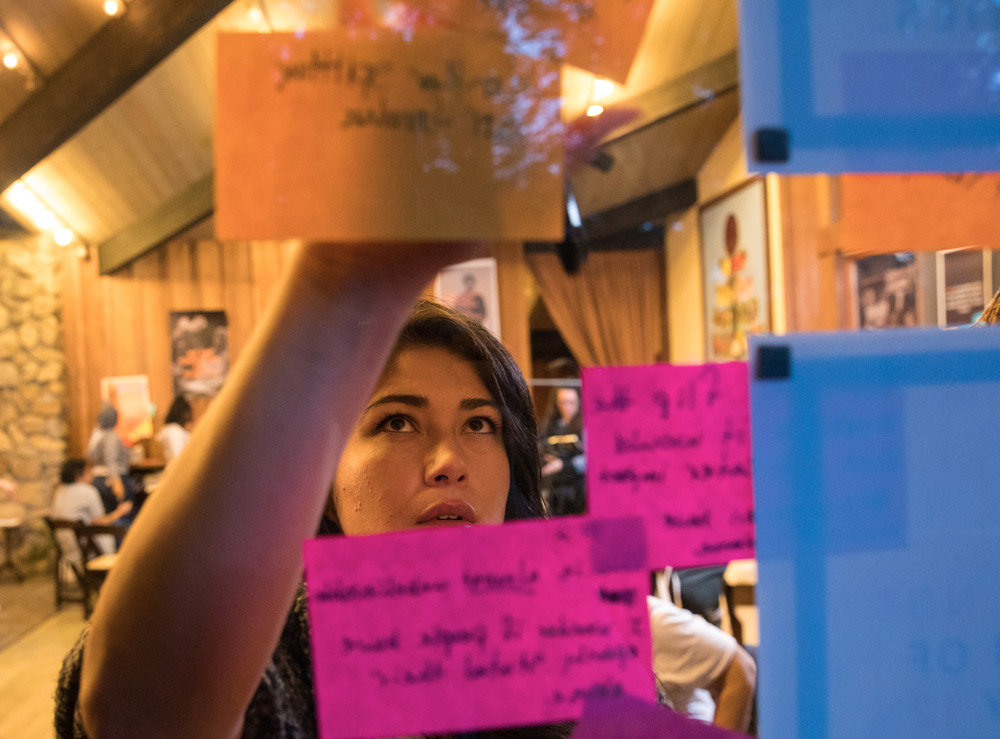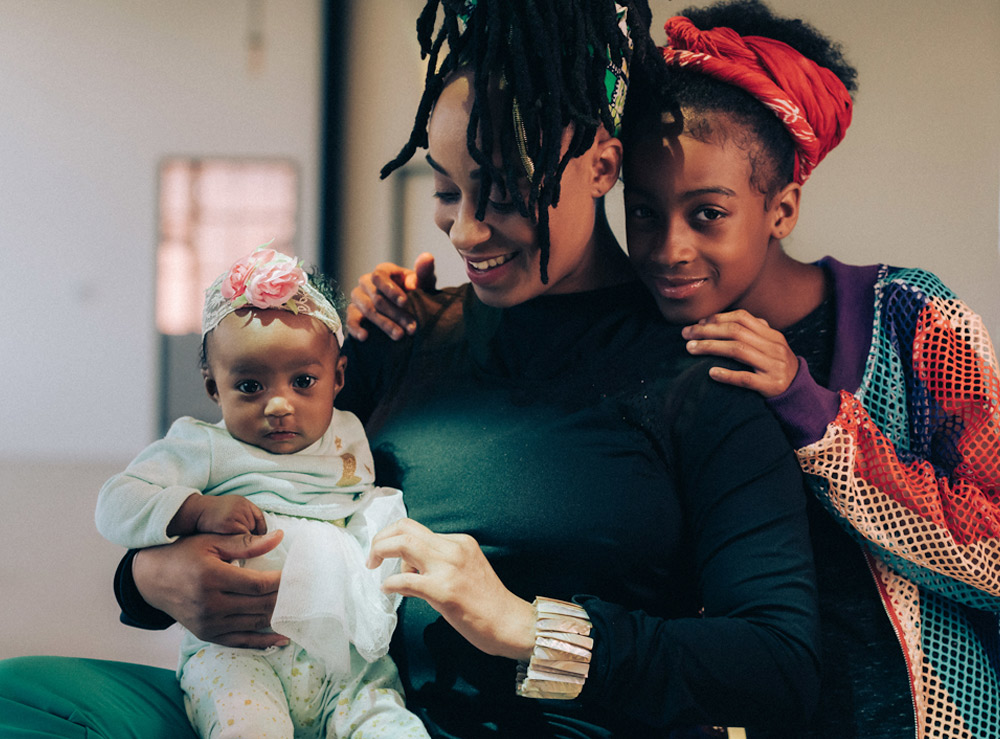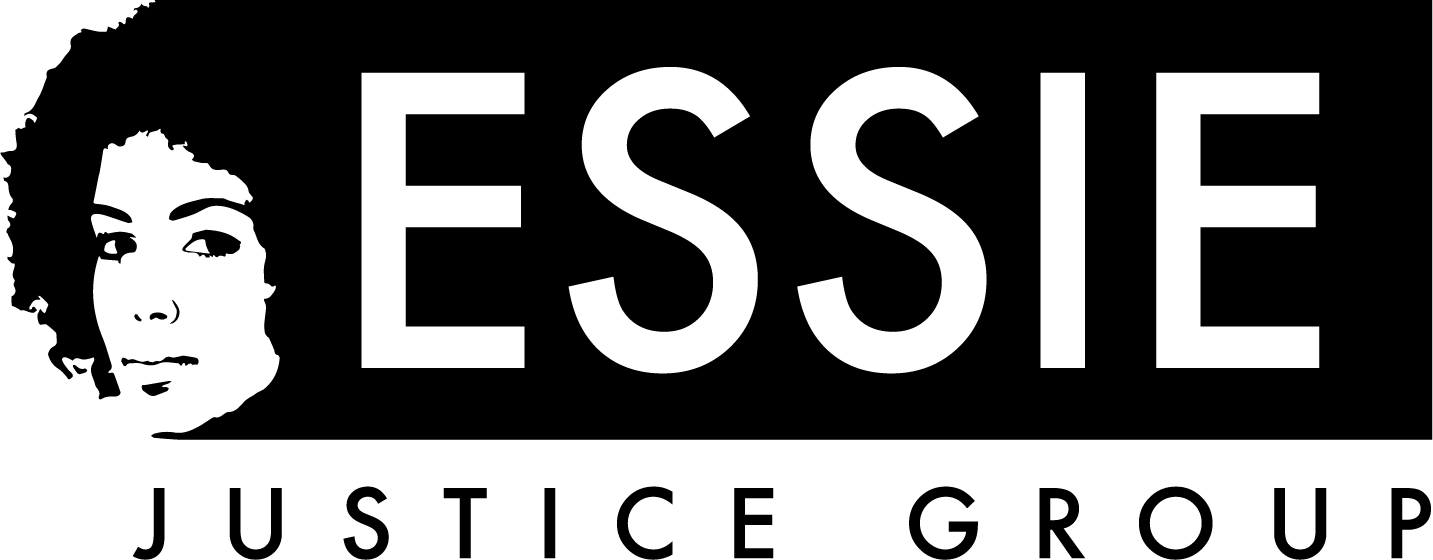Key Findings
Incarceration of a loved one is psychologically and physically traumatic.
86%
The incarceration of a loved one leads to depression, anxiety, anger, stress, and loneliness. Eighty-six percent of women responding to our survey reported that the strain on their emotional and mental health is significant or extreme. That number jumps to 94% for women whose partners are incarcerated.
90%
Almost 90% of women we surveyed who are formerly incarcerated have experienced violence or danger to their physical safety.
Women are the linchpins in communities.
70%
Women provide irreplaceable and essential support for the people in their lives, incarcerated and not. Nearly 70% act as a primary support for at least one of their incarcerated loved ones. More than 80% of women surveyed listed at least one person, incarcerated or not, who depends on them for a basic need.
Nearly 70% of women are their family’s only wage earner.
56%
More than half the women (56%) have children or childcare responsibilities. In focus groups, women described taking over care-taking responsibilities for their incarcerated loved one’s children.
Bail, court fees, and missed economic opportunities financially destabilize women.
35%
Thirty-five percent of women experience homelessness, eviction, or the inability to pay rent or mortgage on time as a result.
A third (32%) of women lose their household’s primary source of income when their loved one is taken away.
54%
Bail depletes women’s earnings—and many are unable to pay it at all. More than half (54%) of women are unable to afford the bail set for an incarcerated loved one. The remaining half (45%) have paid a loved one’s bail. Fifty percent of women who have ever owed money to a bail bonds agency have faced housing insecurity.
43%
Many women sacrifice their educational and career goals when a loved one is imprisoned. Our research found that 43% of women are forced to work more hours, get a different job, or turn down an educational opportunity as a result of their loved one’s incarceration.
Many women with incarcerated loved ones have also been incarcerated.
24%
Almost a quarter of the women who responded to our survey (24%) have been incarcerated in jail, prison, or a detention center. Over a third of Essie Justice Group’s membership in California are formerly incarcerated women.
Women are isolated when a loved one is incarcerated.
Using a standardized 6-point scale to measure social and emotional loneliness, more women received the highest score possible than any other score—meaning that women with incarcerated loved ones are extremely isolated.
80%
Eighty percent of women have not physically touched their loved one within the past month; a quarter of women (26%) have not physically touched their loved one in over a year.
55%
Most women (55%) see their loved ones only monthly or a few times a year, and over a quarter never see their incarcerated loved one. Sixty-five percent of women reported they would see their loved one daily if they were not incarcerated.
57%
Over half (57%) of women have been separated from at least two loved ones through incarceration at the same time. About 7% of women reported that they have had more than ten of their loved ones incarcerated throughout their life.
Download the full report here.
 Darcie Green, Essie Research Team
Darcie Green, Essie Research Team
The Survey
Download the full survey here.
Demographics
The findings in this report are based on
2,281
Completed surveys from women with incarcerated loved ones*
46
States and Puerto Rico**
Age:
54%
of women were between the ages of 25 and 44
Gender and sexuality:***
98%
of women identified as “women”
12%
of women identified as “lesbian,” “gay,” “bisexual,” or “queer”
87%
identified as “straight”
Racial identity:****
38%
of women identify as white
34%
as Black
18%
as Latinx
11%
as API, Indigenous, Arab/Middle Eastern, or “other”

Starr Britt, Essie Demands Team, and her family
* We collected 1,992 online surveys and 604 paper surveys.
** The states were Alabama, Arkansas, Arizona, California, Colorado, Connecticut, District of Columbia, Florida, Georgia, Iowa, Idaho, Illinois, Indiana, Kansas, Kentucky, Louisiana, Massachusetts, Maryland, Maine, Michigan, Minnesota, Missouri, Mississippi, Montana, North Carolina, North Dakota, Nebraska, New Jersey, New Mexico, Nevada, New York, Ohio, Oklahoma, Oregon, Pennsylvania, Rhode Island, South Carolina, Tennessee, Texas, Utah, Virginia, Vermont, Washington, Wisconsin, West Virginia, and Wyoming.
***The women who responded to our survey represent an overwhelmingly cisgender* and heterosexual demographic. We do not believe that this is representative of women with incarcerated loved ones. We know, from our experiences and the experiences of our friends, families, and communities, that many women identify simply as women, regardless of sex assigned at birth. Furthermore, we know that our research design and outreach process impacted who knew about and had access to our survey. Our research process was far from fully accessible to transgender, genderqueer, and gender non-conforming people. In partnership with the Transgender, Gender Variant, and Intersex Justice Group in San Francisco, we held one focus group with women who identify along the spectrum of gender.We include many of the analyses from women in that group in this report. And still, we know that the work of gender, race, and criminal justice movements needs to center—and not just consider—the impact of incarceration on transgender, genderqueer, and gender non-conforming people.
Twelve percent of women who responded to our survey identified as either “lesbian,” “gay,” “bisexual,” or “queer.” The vast majority, 87%, identified as “straight.” Incarceration impacts women who are queer, lesbian, gay, and bisexual in specific ways—from increased barriers to visiting a loved one due to homophobia or laws that limit contact to legally recognized kin. These harms are not adequately addressed in our analysis. Though this report is a first step towards addressing the full extent of mass incarceration as a system of gendered oppression, without understanding the ways in which incarceration is operating to control women who are marginalized by heteronormative conventions and stereotypes, we will not understand how incarceration harms women.
****A little over a third (34%) of women we surveyed identified as Black or African-American; thirty-seven percent identified as white; eighteen percent identified as Latinx. Only 10% of respondents identified as either Asian, Pacific Islander (API), Middle Eastern or Arab, or Indigenous.
While our research was substantially led and informed by Latinx women, our report does not center the ways in which incarceration operates as a continuation of the colonialism, imperialism, and genocide enacted upon Latinx, API, Middle Eastern, Arab, and Indigenous communities.
We therefore do not present this report as a comprehensive analysis of incarceration’s harm to women with incarcerated loved ones, knowing we cannot fully understand incarceration’s harm to all women. We offer this report as an imperfect and hopeful beginning.
